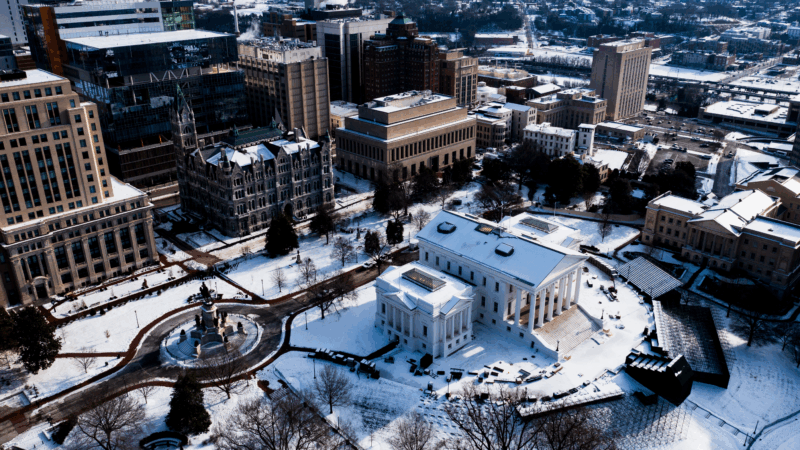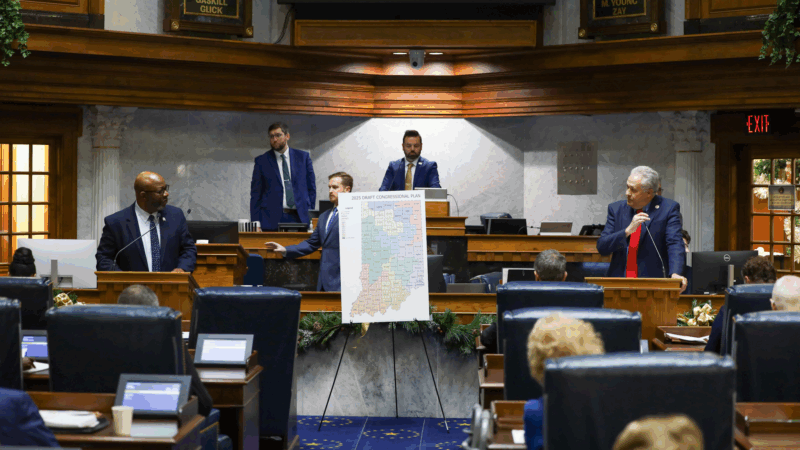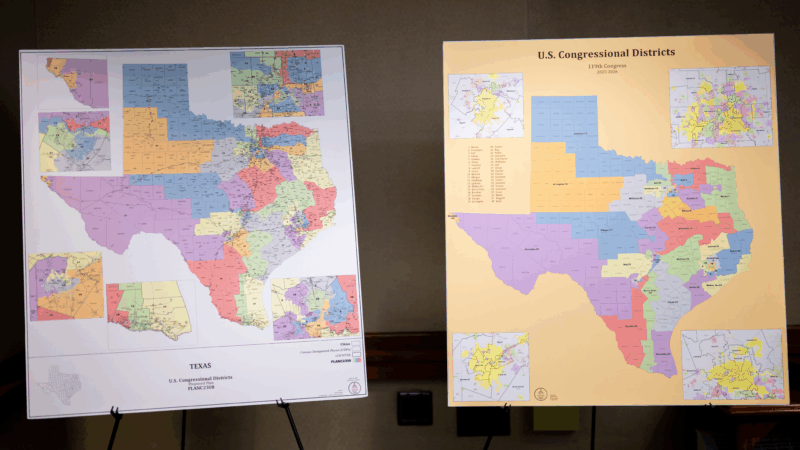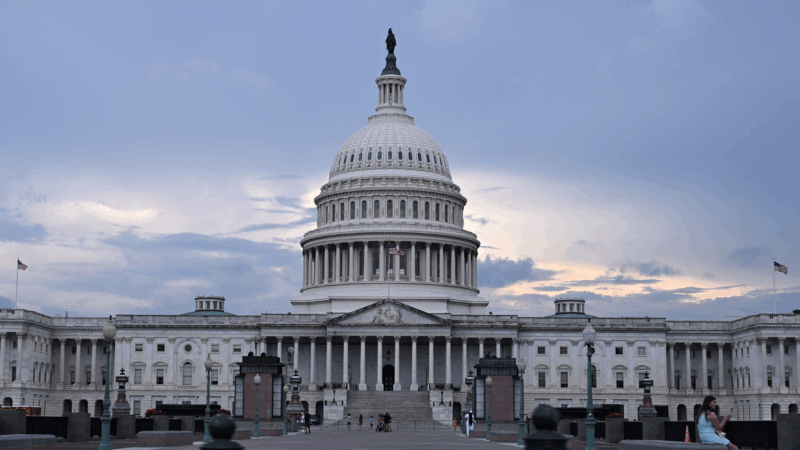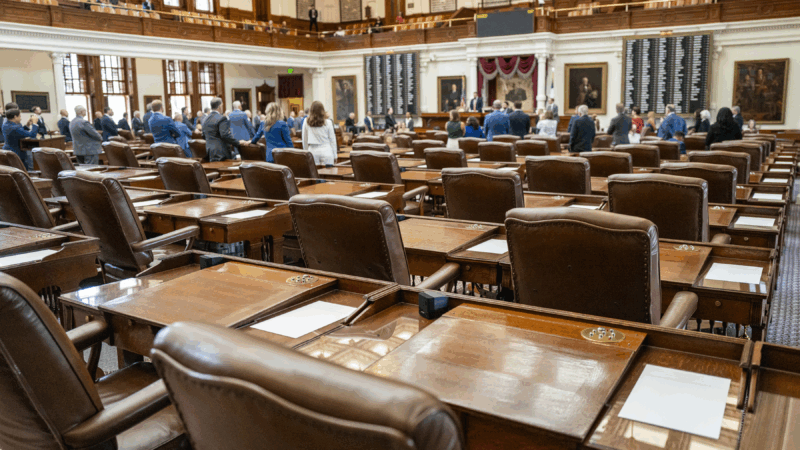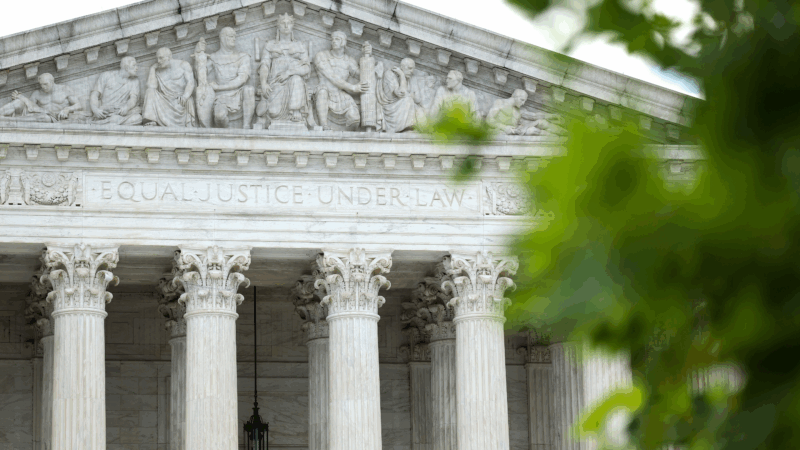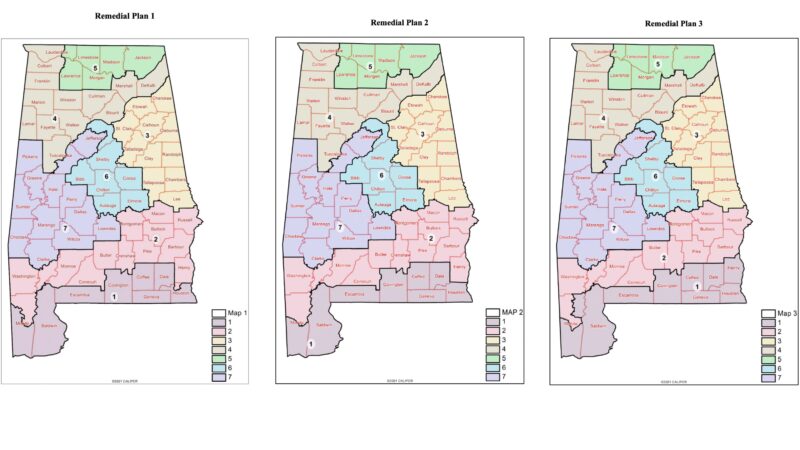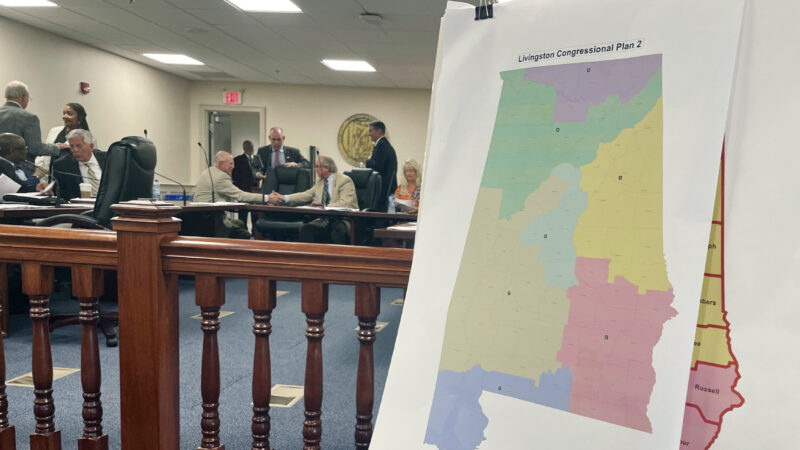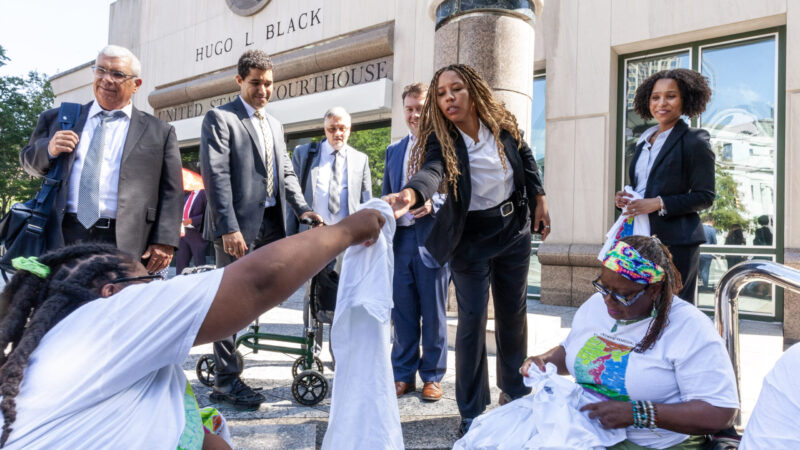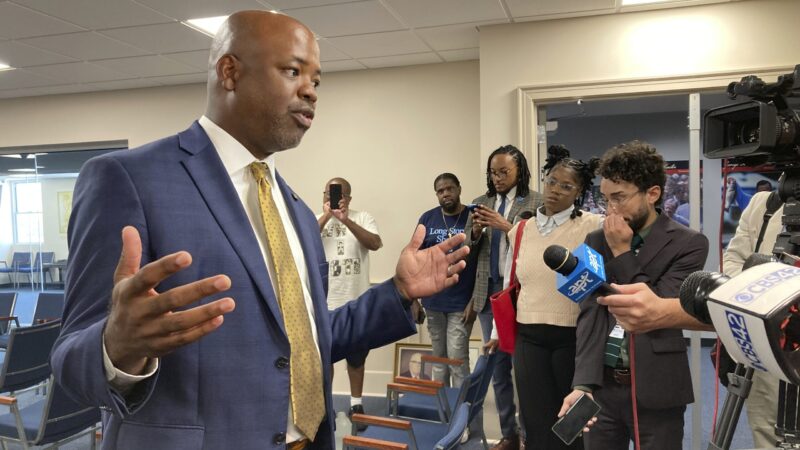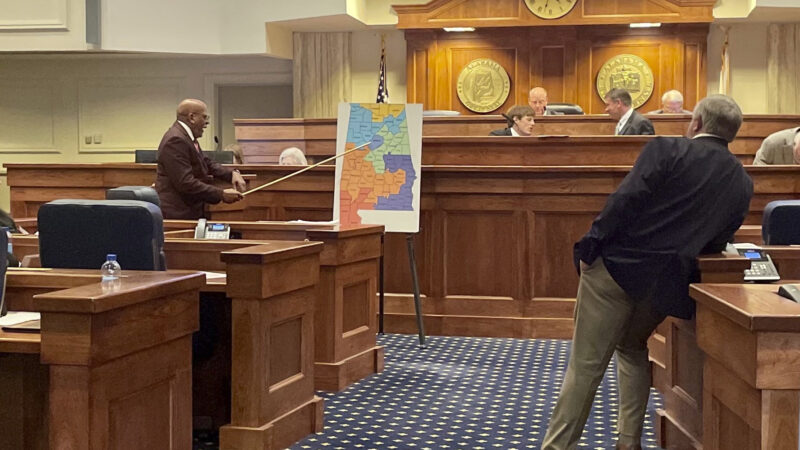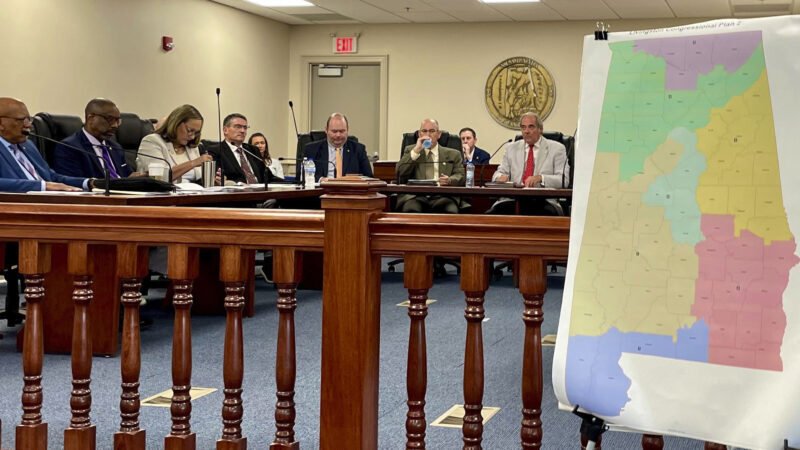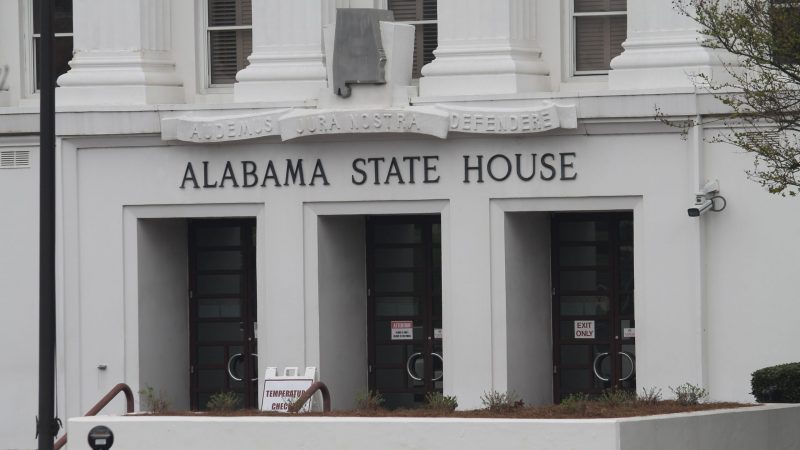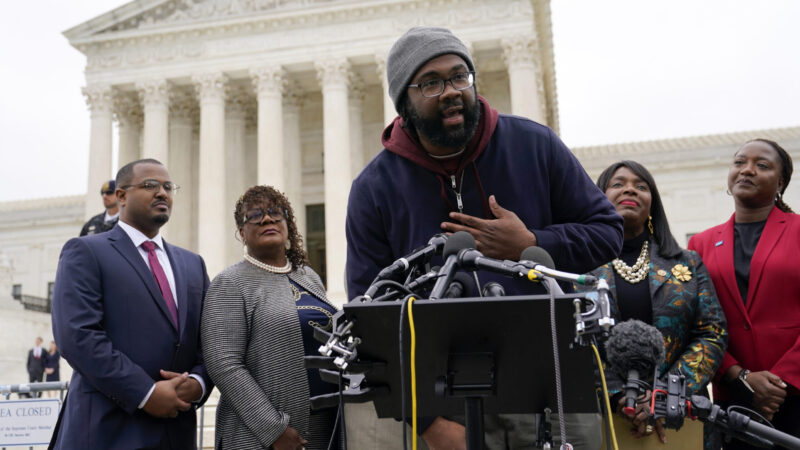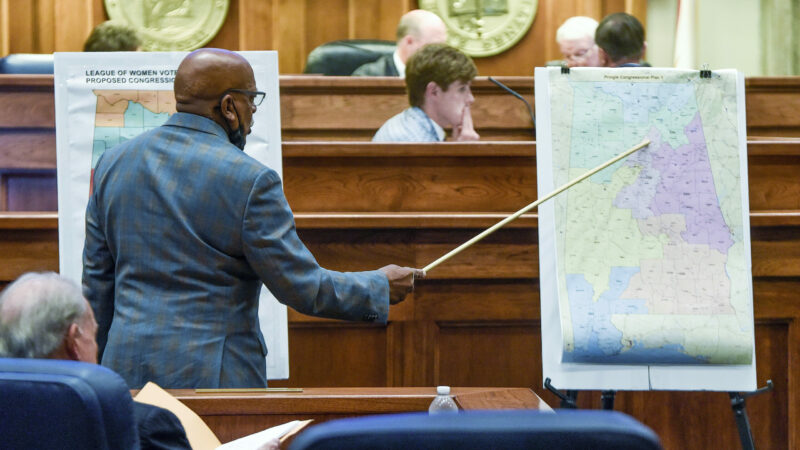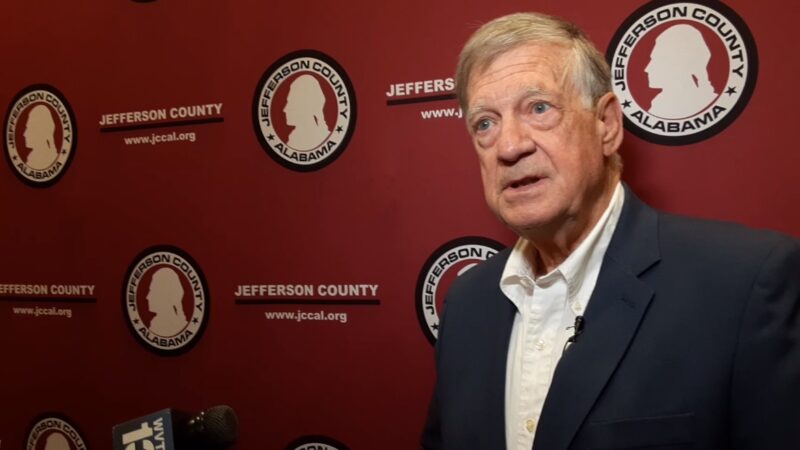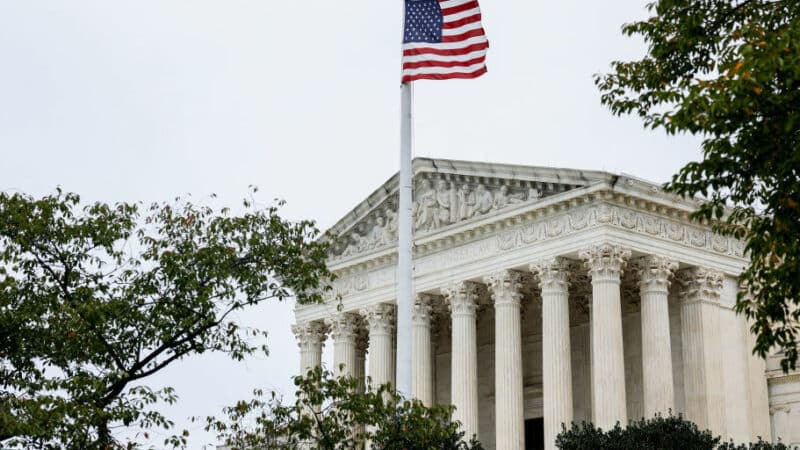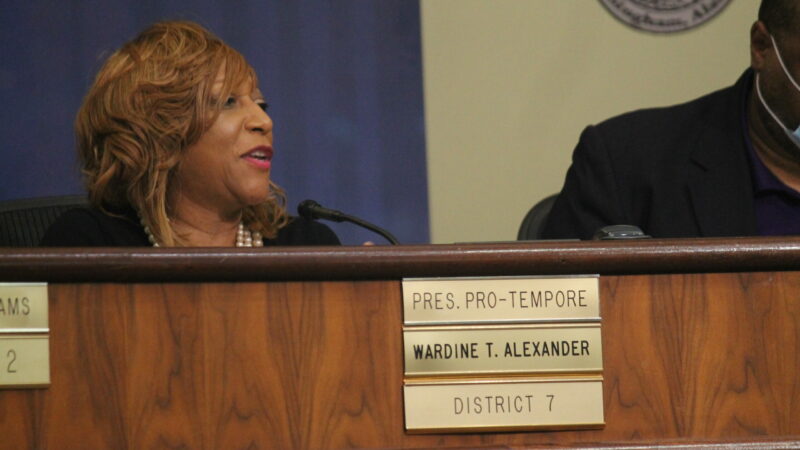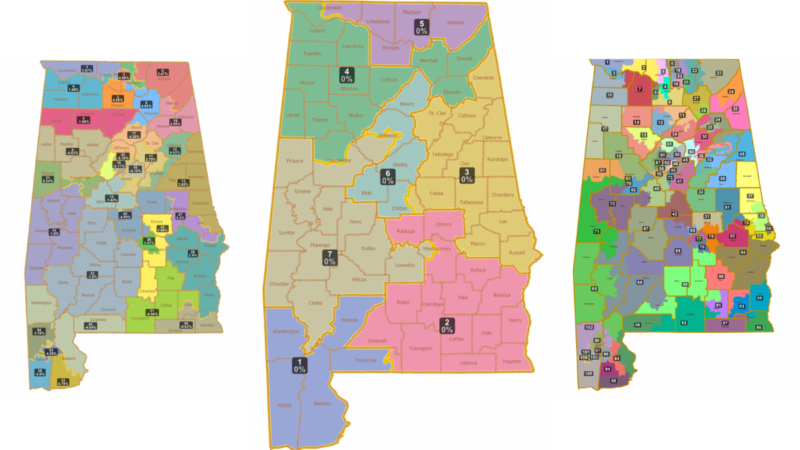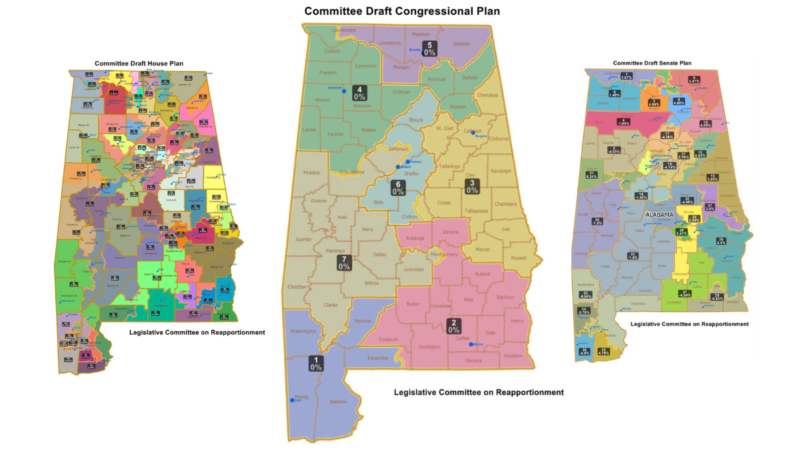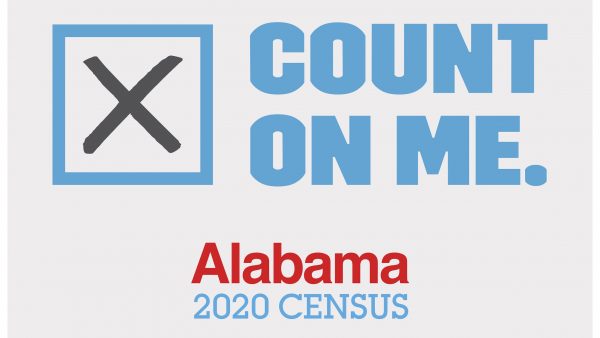Redistricting
Virginia Democrats show map to counter Trump redistricting but its future is unclear
The new map still requires approval from the courts and the voters but, if enacted, it could help Democrats win four more House seats
Trump will revisit a North Carolina town, now the focus of a newly redrawn congressional district
While he is directly appealing to Americans that the economy is improving, President Trump will visit a congressional district Republicans are eyeing in their attempts to keep control the U.S. House.
In a setback for Trump, Indiana lawmakers defeat redistricting plan
Indiana Republicans resisted the call by President Trump for redistricting. He and the state's Republican governor threatened to back primary challenges against senators who wouldn't get on board.
After Texas ruling, Trump and Republicans head to 2026 with a redistricting edge
Trump has prompted a redistricting race as he tries to maintain Republican control of the House in the 2026 elections. Democrats have fewer options to counter, as the battle heads into next year.
At Trump’s urging, Missouri jumps into redistricting race to help Republicans
Gov. Mike Kehoe called a special session starting Wednesday to help the GOP hold onto Congress. It's part of the battle to reshape the voting map and help Trump keep a majority for his agenda.
With newly approved maps in Texas, GOP puts its gains with Latinos to the test
President Trump and Republicans made big inroads with Hispanic voters in Texas last year. Now, a newly approved redistricting plan will test whether those gains are locked in for good.
The Framers wanted the House closest to the people. Redistricting may undermine that
Redistricting critics warn that efforts to redraw maps mid-decade risks fueling further gridlock in Congress, and ceding more power to the executive and judicial branches.
In Houston, some worry their problems would be neglected after redistricting
In one neighborhood of the city, Latinos worry about immigration and urban problems but may soon be grouped in with suburban voters.
Judges to weigh request to put Alabama under preclearance for a future congressional map
Black voters and civil rights organizations, who successfully challenged Alabama’s congressional map, are asking a three-judge panel to require any new congressional maps drawn by state lawmakers to go through federal review before being implemented. The Alabama attorney general and the U.S. Department of Justice oppose the request.
Supreme Court postpones Louisiana redistricting case to next term
At issue is the Louisiana legislature's creation of a Black-majority congressional district, which a group of voters claimed was an illegal racial gerrymander.
Court appointee proposes Alabama congressional districts to provide representation to Black voters
The three proposals all create a second district where Black voters comprise a majority of the voting age population or close to it — something that state lawmakers refused to do when they drew lines this summer.
Supreme Court to decide whether Alabama can postpone drawing new congressional districts
The outcome could determine what map the state uses in the 2024 elections and whether the high court will revisit arguments over the role of race in redistricting.
Judges reject Alabama’s congressional lines, will draw new districts to increase Black voting power
The three-judge panel blocked use of the state's newly drawn congressional map in next year's elections. A special master will be tapped to draw new districts for the state, the judges said. Alabama is expected to appeal the decision to the U.S. Supreme Court.
The fight over Alabama’s congressional redistricting now shifts back to federal court
The outcome could have consequences across the country as the case again weighs the requirements of the Voting Rights Act in redistricting. It could also impact the partisan leanings of one Alabama congressional district in the 2024 elections with control of the U.S House of Representatives at stake.
Alabama lawmakers refuse to create 2nd majority-Black congressional district
The legislation now goes to Alabama Gov. Kay Ivey, who is expected to sign it.
Alabama GOP proposals for second Black district are unlikely to win court approval experts warn
The Republican-controlled state House and Senate will meet Friday and could advance separate plans increasing the share of Black voters in Alabama’s 2nd Congressional District. Legislative leaders say they intend to meet the deadline, meaning the two chambers must compromise on one plan.
After court ruling, Alabama GOP criticized for rejecting 2nd majority-Black congressional district
Lawmakers must adopt new maps by Friday after the U.S. Supreme Court in June upheld a finding that the current state map likely violated the federal Voting Rights Act.
Alabama Republicans, despite Supreme Court ruling, reject call for second majority Black district
Lawmakers must adopt a new map by Friday after the high court in June affirmed a three-judge panel's ruling that Alabama’s existing congressional map likely violated the Voting Rights Act.
Alabama rushes to adopt new congressional map amid disagreement on what district should look like
Alabama lawmakers convene in special session Monday tasked by the court with adopting a new map by the end of the week. The directive comes after a surprise U.S. Supreme Court ruling that affirmed the lower court's ruling that Alabama's existing congressional map likely violated the Voting Rights Act.
Alabama lawmakers to convene to redraw maps US high court declared unfair to Black voters
The U.S. Supreme Court this month affirmed the panel's finding that Alabama likely violated the Voting Rights Act with a congressional map that had only one majority Black district out of seven in a state where more than one in four residents is Black.
Alabama must move quickly to draw new congressional districts
The U.S. Supreme Court last week affirmed a lower-court ruling finding Alabama likely violated the Voting Rights Act with an Alabama congressional map that had only one majority Black district out of seven in a state where more than one in four residents is Black. The state must now draw a new map by July 21.
Commission approves billing agreement with Birmingham Water Works Board
The agreement between the Jefferson County Commission Tuesday follows months of negotiation between the two entities.
The landmark Voting Rights Act faces further dismantling in case from Alabama
The law is once again on the chopping block — this time on the question of how state legislatures may draw congressional district lines when the state's voters are racially polarized.
Birmingham Council OKs New Districts Despite Dissent
Councilors sparred Tuesday over the maps which were redrawn based on numbers from the 2020 census.
Supreme Court lets Alabama use GOP-backed map of the state’s congressional districts
The court's action came on an emergency appeal from Alabama, which challenged a decision by a three-judge federal court panel that included two Trump appointees.
Alabama’s new congressional districts map blocked by judges
The judges wrote that Alabama should have two districts, instead of one, in which Black voters are a sizeable portion of the electorate.
Lawsuits challenge new legislative, congressional lines
The NAACP, Greater Birmingham Ministries, and others filed a lawsuit this week against Alabama's new legislative and congressional districts. They say the redistricting allows for racial gerrymandering.
Community leaders call for ‘fair maps’ ahead of special session on reapportionment
State legislators will meet Thursday for their second special session of the year. This time they'll vote on new legislative maps following the 2020 census.
JeffCo commissioners begin redrawing district lines
Jefferson County Commissioners are deciding between three proposed maps for redistricting.
Alabama’s Census Leader Hopes For A “Second Wind” To Boost Census Participation
Time is running out on the census and Alabama is below the average among states for people who have filled out their forms.
John Archibald: Government Reboot and Mellencamp’s Advice for Alabama
The federal government shutdown is now in its third day with little sign of a breakthrough between Democrats and Republicans in Washington. But Alabama Media Group columnist John Archibald says we don't need a government shutdown. We need a government reboot. He also talks about what Alabama could learn from rocker John Mellencamp.

